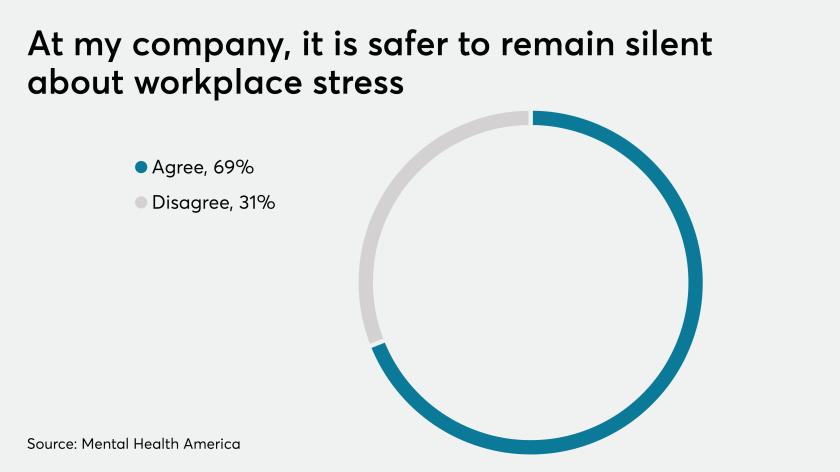Right now, we’re in the danger zone of having some of these pandemic-era habits becoming permanent.
Small banks are a lifeline for many local businesses and should be given first crack at distributing funds from a continuation of the federal stimulus program.
Community advocates would like to see changes to the 1977 Community Reinvestment Act, but say regulators should suspend such efforts until the coronavirus pandemic has passed.
Managers can project gratitude and resilience using positive psychology methods, which will help employees weather the challenges of coronavirus and other workplace adjustments.
Without the ability to catch early signs of burnout, employers may miss important cues as workers struggle with anxiety and stress.
From Roth conversions to QHFDs: The coronavirus pandemic is forcing difficult questions, and clients rightfully are looking for answers that advisors are uniquely suited to provide.
An integrated healthcare model can treat behavioral health issues more holistically than relying on add-on benefits.
It’s estimated that workplace stress now costs employers $500 billion annually in the form of decreased performance at work or absenteeism.
There isn’t a better time than now to review your employee healthcare and wellness benefits.
Banks and credit unions should make it their top priority to pair with the central bank in distributing financial relief to small businesses, even if that means putting everything else on hold.


















